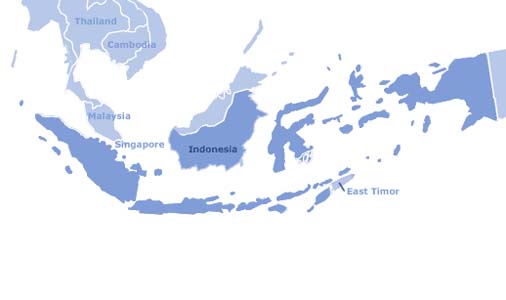Indonesia quake aid trickling in as hopes for the missing fading
 Padang, Indonesia - Aid was trickling in slowly four days after a powerful earthquake devastated Indonesia's West Sumatra province, as hopes of finding survivors under collapsed buildings were fading, officials and residents said Sunday.
Padang, Indonesia - Aid was trickling in slowly four days after a powerful earthquake devastated Indonesia's West Sumatra province, as hopes of finding survivors under collapsed buildings were fading, officials and residents said Sunday.
Aid came from across the country and around the world, but the distribution of relief assistance was slow in some of the more remote areas and many survivors were in desperate need of food and shelter.
"Many survivors have not received aid because there isn't any yet for them," said Ade Edwar, head of West Sumatra's disaster coordinating agency.
"Assistance is on its way. There's a process and it takes some time," he said. "No one has died because they haven't eaten yet."
In hard-hit Padang Pariaman district, survivors were setting up barriers on the roads near their damaged domes, begging for donations from motorists.
The official death toll from Wednesday's 7.6-magnitude earthquake rose to 603 Sunday, while 343 people were listed as missing and more than 2,800 were injured, according to data from the disaster relief coordination post at the governor's office.
But Rustam Pakaya, head of the Health Ministry's crisis centre, said another 618 people were believed killed when landslides triggered by the earthquake slammed into entire hamlets in Padang Pariaman district, where a wedding party was held.
Thousands of others were trapped under rubble in Padang, he said.
Survivors in the provincial capital Padang complained that they had not received assistance, while traders jacked up prices for basic commodities, citing scarcity.
Lack of clean water, fuel and electricity added to the suffering.
"Where is the assistance?" asked Yanti, 38, a resident of Padang.
"Government officials should not claim the condition has been restored, while the truth is the staple foodstuffs are not available," complained Rino, another victim, who like many Indonesians goes only by one name.
Health officials have warned that outbreaks of diseases could threaten survivors, many of them homeless.
Some victims live with relatives whose homes were still intact.
"We don't intend to concentrate displaced people in one location," Edwar said. "We encourage people to set up tents near their damaged houses or live with relatives."
Vice President Jusuf Kalla said the government would give compensation to those whose homes were damaged.
"Depending on the damage, some people may get 15 million rupiah (1,500 dollars), while others may get only 10 million rupiah or 1 million rupiah," Kalla said.
More than 400 rescuers from Japan, the United Arab Emirates, Australia, Switzerland, South Korea and Singapore, wearing brightly coloured uniforms, have joined the search for the missing.
Governments around the world have provided money and other aid such as medicine, tents and food. The European Commission has provided 3 million euros to help deal with initial humanitarian needs, said EC President Jose Manuel Durao Barroso in a press statement.
Indonesia, the world's largest archipelago nation, sits on the Pacific "Ring of Fire," the edge of a tectonic plate prone to seismic upheaval.
A major earthquake and subsequent tsunami struck in December 2004, leaving more than 170,000 people dead or missing and 500,000 people homeless in Indonesia's Aceh province.
Geologists have said that Padang, a low-lying city of 900,000 people, risks being swallowed by a tsunami in the event of an earthquake similar in magnitude to the one that triggered the giant 2004 wave.
An earthquake last struck Padang in 2007, killing dozens of people and injuring scores. (dpa)